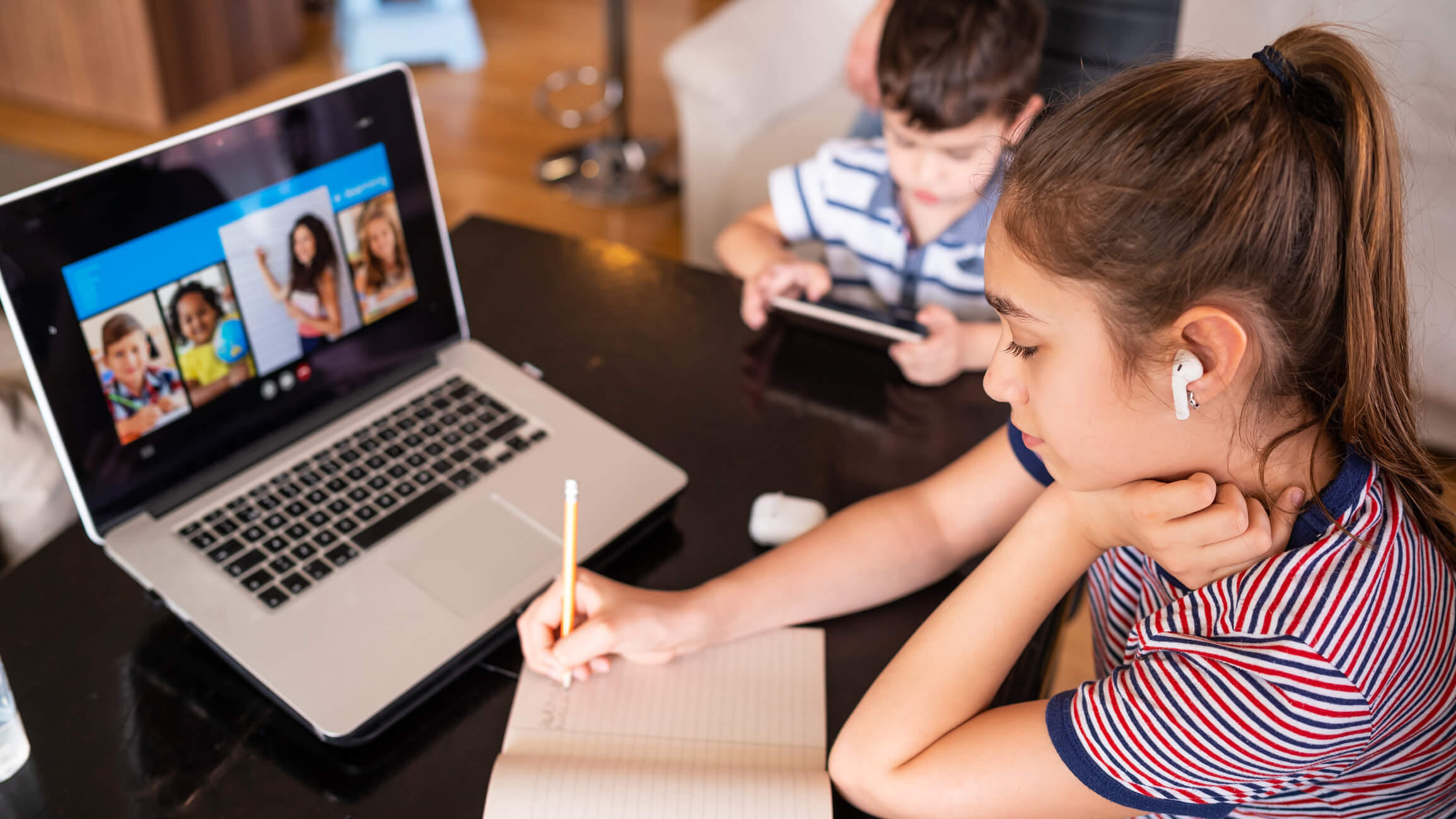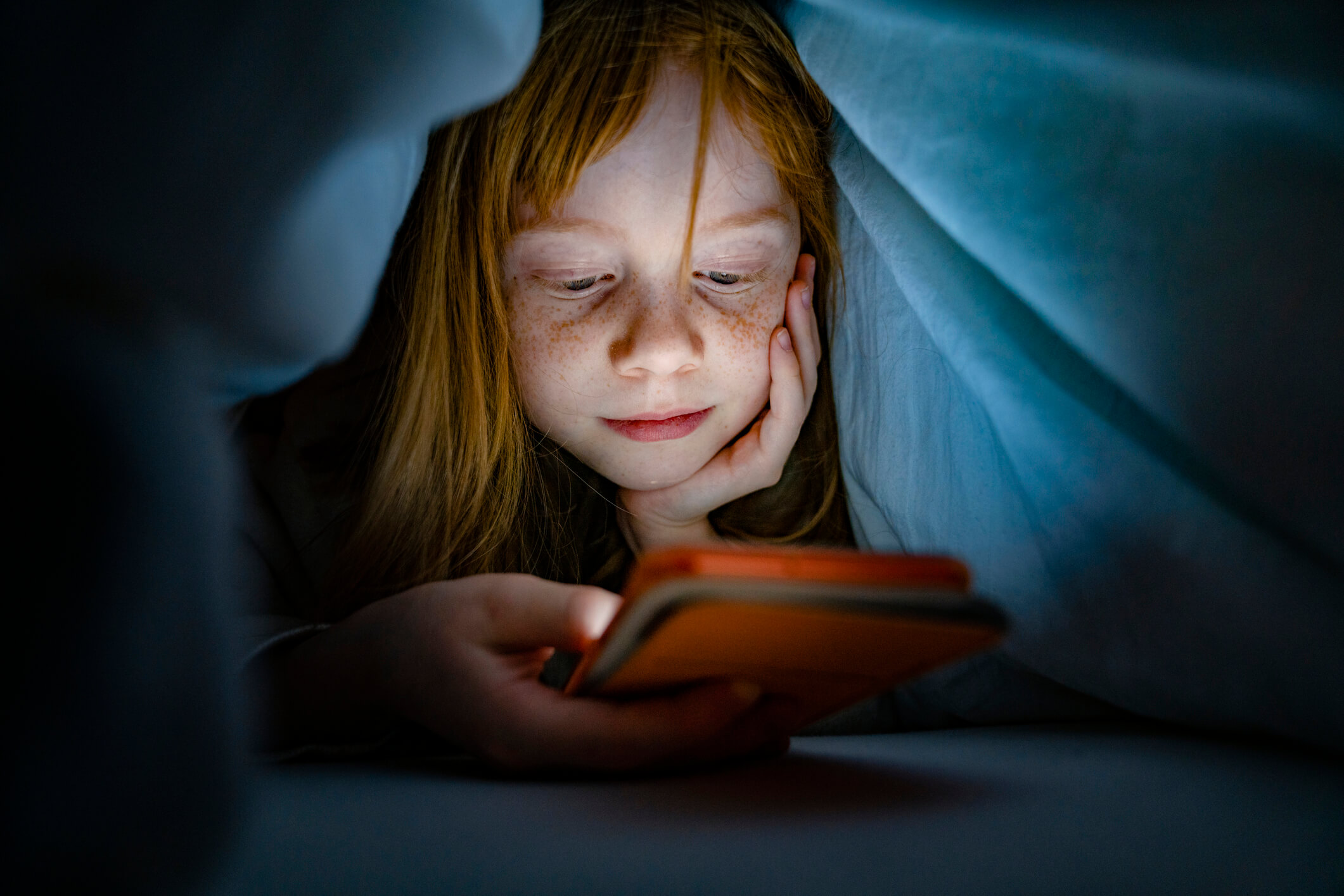Child psychiatrist Dr. Nathalie Ferrant-Otormin answers my questions on children’s mental health during a pandemic. What are the possible consequences of the pandemic on children in the short and medium term? How to spot the first signs of trouble? What can parents do to prevent them? And, above all, when and who to consult?
To what extent has the pandemic affected the mental health of the youngest (children under 10)?
Dr Ferrant-Otormin – In the hospital where I work, for example, we have observed an increase in requests of around 20% since the start of the pandemic, and we have had to request an additional psychologist position focused on emergencies in child psychiatry.
This increase can in part be attributed to the pandemic , although the link is not always obvious. The pandemic inevitably causes fears that spill over to children , especially if there is someone fragile in the family. They are aware that they are vectors of contamination, and express their fears very clearly. In addition, anxious parents can pass on their anxieties unwittingly. This sometimes manifests itself in anxious school refusals . Children often find it difficult to understand why they have to go to school while their parents stay at home.
Containment obviously played a role in this degradation. Most of the children accepted the situation fairly well at the start of the first confinement, but much less during the second. It is as if this has reopened the traumatic injury , especially for those who have experienced a serious case in their family.
“ Regarding dropping out of school , it is estimated that around 4% of students (all levels combined) have disappeared from the radar. “
What is the proportion of children affected?
Dr. FO – We still lack perspective on the issue, and the data should be crossed with the figures from National Education. Regarding dropping out of school , it is estimated that around 4% of students (all levels combined) disappeared from the radars during the first confinement. Many children are still in great difficulty despite returning to class in person, and others have unfortunately been able to drop out since.
Schools can set up systems for children in greatest difficulty. In particular, it is possible to authorize them to come to class for all lessons, and not just in half-groups.

“ Whether in the hospital or in private practice, we often find the same reasons for consultation. “
Q – What are the main mental health pathologies that affect children?
Dr. FO – Whether in hospital or in private practice, we often find the same reasons for consultation, which are:
- The behavioral problems that often result from an educational problem. Parents feel helpless, overwhelmed and in need of support. They can also express depressive symptoms or underlying psychiatric pathologies.
- The attention disorders whose diagnosis is often mentioned by the school, with or without hyperactivity.
- The learning disability that can include language disorders oral or written (dyslexia, dysgraphia …) of psychomotor end or global (dysgraphia) and neurodevelopmental disorders (dyspraxia).
- A speech therapy assessment may be necessary in these cases.
- A psychomotor or occupational therapy assessment can also intervene in the treatment of motor and psychomotor disorders.
- Finally, children may also need pediatric neurological follow-up .
- The autism spectrum disorders who, because they are diagnosed late, struggling to be properly taken care of, and should be oriented on specialized platforms.
- Of depression and suicidal states in adolescents .
- The addiction to video games and eating disorders …
” The problems of attention and learning are accentuated by the fact that there are too many surrounding distractions . “
Q – Has the pandemic worsened these phenomena?
Dr. FO – The pandemic has been added to already existing problems . There is often already complicated ground, such as a divorce or a death in the family. Attention and learning problems are compounded by the fact that there are too many surrounding distractions . Some children tell us that they don’t hesitate to go to social media during their online lessons. It is also much more difficult to stay focused on a screen than in a classroom.
Q – With what consequences in the medium and long term for the development of the child?
Dr. FO – Learning delays are difficult to catch up , especially if they are not addressed early enough. It is necessary to put in place specific arrangements from an early age. The anxiety and phobias (social, microbes …) are disorders that can be installed on the long term and leave scars. The principle is the same: the earlier you take care of it, the better the chances of recovery.
“ There are children who unfortunately cannot benefit from help with their homework. “
Q – Beyond the pandemic, what can be the aggravating factors?
Dr. FO – The difficulties are more frequent and more important in families already weakened from an economic point of view . There are families who live in small spaces, which generates conflicts and can lead to explosive situations.
Economic difficulties obviously generate problems for material supplies . I knew the example of a family who had only one computer for the whole house. It requires a lot of effort and adaptation on the part of the parents. In addition to this, there are children who unfortunately cannot get help with their homework. Conversely, there are parents who prefer to do their children’s homework, which ultimately does them a disservice!
Other factors also come into play. The hyperconnexion screens , video games can impair the development of children. However, if the child spends a lot of time on the phone, it should also be remembered that at this age one has other concerns. It is also the way for them to maintain contact with their friends.

Q – How can parents assess their child’s mental health?
Dr. FO – Usually parents notice when there is a problem , you have to trust them. They know their children and see very well when they start to change their behavior and it gets abnormal. This is why I rarely see parents consulting without a valid reason, even if sometimes, it is ultimately more for them than for their child that the consultation will be useful.
Q – What signals should parents watch out for?
Dr. FO – The signals that can be found are very varied. The loss of motivation, the withdrawal into oneself, the worthlessness of oneself , the need to stay in the cocoon of the house, are signals of sadness in children. When a child no longer takes care of himself, stops calling his friends and doing the activities he loves, that he is always tired and does not want to do anything, you have to worry.
These disorders can evolve and lead to the appearance of tics and tocs , phobias , eating disorders or even lower grades in class. These symptoms should also be taken seriously.
“ The school also plays a whistleblower role because it identifies children in difficulty. “
Q – When is consultation with a child psychiatrist the recommended solution?
Dr. FO – Parents’ consultation requests are rarely unjustified . Sometimes even one session is enough to reframe things. Parents often need reassurance, and these sessions can help them and serve as a preventive measure.
The school also plays a role of whistleblower because it identifies children in difficulty. However, it is sometimes a little late to start treatment. Learning disabilities should be followed up as soon as possible. So if you notice a problem, don’t hesitate to consult.
Q – How to prepare your child for a consultation with a child psychiatrist? What to say to him without alarming him?
Dr. FO – You can reassure him by explaining to him that everything that is said with the shrink remains secret , and that he can therefore speak with confidence. It is important not to force the meeting. It is up to the child psychiatrist to create the link with the child .
In general, the first consultations are done with a single parent , most often the mother, with or without the child. The therapist interacts with the parent in the presence of the child who listens, while being able to intervene when he wishes. This moment of exchange with the parent heals as much as if we were talking to him. Depending on his age, it is possible to see him alone during the session or to involve the parent only at the end of the session, for example.
“ The pandemic has disrupted routines . One of the first recommendations to give is to ritualize the day . “
How can parents support their child in the phases of depression or temporary discomfort?
Dr. FO – The pandemic has disrupted routines . One of the first recommendations to give is to ritualize the day . Eat breakfast with the family, get dressed before starting school or work, have dinner together, tell each other about their day, take the dog for a walk with the family. These are moments of freedom when family members rediscover how to do things together.
Some children or adolescents present behavioral problems , but this is more educational than psychological care. You can try to make contracts with them , so that they go certain periods without a screen, for example. Try to spend more time with them as well . You can offer to cook together, to set the table together, to watch a series together: this allows you to recreate dialogue and bond.
Another piece of advice I can give is to limit exposure to streaming news channels . You have to pay attention to the pictures that children watch. It is up to parents to protect children from anxiety and to play a filter role. Better to read the press, which favors a certain distance, and explain to them what is going on.
Finally, do not hesitate to consult your general practitioner . Many parents do not dare to “bother” for a reason other than COVID. However, it is quite legitimate, everyone needs to empty their bag , except that there are no more meetings between friends to do so! You can also turn to teleconsultation to consult from home and thus avoid the waiting room and save time.


